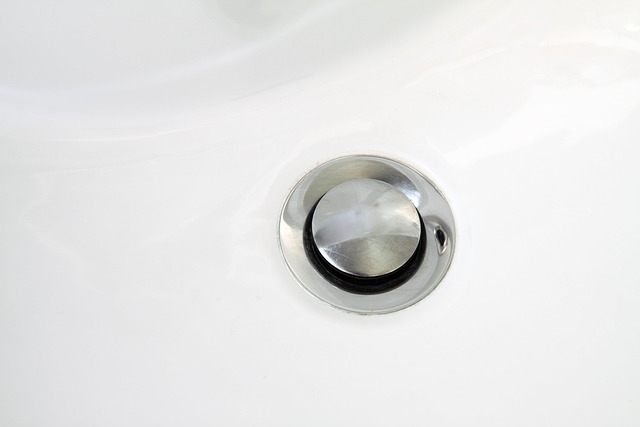Septic systems rely on beneficial bacteria and natural enzymes to treat wastewater, preventing clogs and prolonging system lifespan. Regular enzyme-based treatments maintain this balance, reducing the need for harsh chemicals and costly interventions like a plumber's snake. Natural enzymes effectively break down organic matter, eliminate odors, and extend septic system lifespans. While a plumber's snake aids in detecting and clearing physical obstructions, natural enzymes are crucial for overall septic health and safety.
In today’s quest for eco-friendly solutions, natural enzymes emerge as powerful allies in maintaining septic system health. This article explores the intricate balance of septic systems and the crucial role of enzymes in keeping them functioning optimally. We delve into the benefits of using natural enzymes over chemical alternatives, offering practical tips for incorporating them into your care routine. Additionally, learn how a plumber’s snake can assist in maintaining septic safety naturally.
- Understanding Septic Systems and Their Enzymatic Balance
- The Role of Natural Enzymes in Maintaining Septic Health
- How Plumber's Snake Can Assist in Septic Safety
- Benefits of Using Natural Enzymes Over Chemical Alternatives
- Practical Tips for Incorporating Natural Enzymes in Your Septic Care Routine
Understanding Septic Systems and Their Enzymatic Balance

Septic systems are intricate networks designed to treat and dispose of wastewater safely, away from potable water sources. At the heart of this process lies a delicate enzymatic balance. Enzymes, produced by beneficial bacteria, break down organic matter into simpler compounds that can be absorbed or flushed away. This natural process is crucial for maintaining the system’s health and efficiency.
However, disruptions in this balance can lead to clogs and backups, often requiring the intervention of a plumber’s snake (a tool used to clear blockages) or other professional maintenance. Regular enzyme-based treatments can help restore and maintain this balance, ensuring septic systems operate smoothly and safely, without the need for frequent, potentially harmful chemical interventions.
The Role of Natural Enzymes in Maintaining Septic Health

Natural enzymes play a vital role in maintaining the delicate balance within septic systems, often considered a game-changer in the world of plumbing. Unlike traditional methods that may involve harsh chemicals, these biological catalysts offer a gentle yet effective approach to septic care. Enzymes, such as those derived from plants and bacteria, are designed to break down organic matter, ensuring smooth waste decomposition. This natural process prevents clogs and reduces the risk of system failure, eliminating the need for frequent plumber interventions, including the use of a plumber’s snake.
By harnessing the power of nature, septic systems can operate more efficiently, extending their lifespan. These enzymes are particularly effective in treating greases, oils, and fatty acids that often accumulate in pipes, causing blockages. They also help in reducing odor issues, ensuring a healthier environment for both homes and commercial spaces. With regular enzyme treatments, homeowners can prevent costly repairs and maintain the integrity of their septic systems without resorting to intensive mechanical methods.
How Plumber's Snake Can Assist in Septic Safety

Plumber’s snakes are a handy tool that can play a significant role in maintaining septic safety. These flexible, cylindrical devices are designed to navigate through pipes and reach areas that are difficult or impossible for other cleaning methods to access. By inserting a plumber’s snake into the septic system, professionals can detect blockages caused by grease, hair, or solid waste, which are common issues leading to septic tank problems.
Not only do they help in identification but plumber’s snakes also serve as an effective tool for clearing clogs. The snake’s auger, a spiral-shaped wire, spins and cuts through obstructions, breaking them down into smaller pieces that can pass through the pipes without damaging the septic system. Regularly using plumber’s snakes for preventive maintenance can ensure optimal performance of your septic tank, reducing the risk of costly repairs or environmental hazards associated with septic system failures.
Benefits of Using Natural Enzymes Over Chemical Alternatives

Using natural enzymes as a treatment for septic systems offers several advantages over traditional chemical alternatives. One of the key benefits is their gentle yet effective nature; these biological agents break down organic matter without harsh side effects or damage to the delicate ecosystem within the septic tank. Unlike chemicals, which can sometimes disrupt the balance of beneficial bacteria, natural enzymes support and enhance their growth, ensuring a healthier, more efficient septic system.
Additionally, enzyme-based treatments are environmentally friendly, making them an attractive option for eco-conscious individuals and businesses. They pose no risk to nearby water sources, unlike certain chemicals known to contaminate rivers and lakes when improperly disposed of. Moreover, natural enzymes can be more cost-effective in the long run as they require less frequent application compared to chemical solutions, reducing the need for regular, potentially expensive interventions by a plumber’s snake or other mechanical methods.
Practical Tips for Incorporating Natural Enzymes in Your Septic Care Routine

Incorporating natural enzymes into your septic care routine is an eco-friendly and effective way to maintain a healthy septic system. Start by understanding that these enzymes are powerful catalysts that break down organic matter, reducing the load on your septic tank. One practical tip is to use enzyme-rich products specifically designed for septic systems during your regular cleaning and maintenance checks. These products often contain bacteria and fungi that naturally digest waste, ensuring efficient decomposition.
Additionally, consider introducing raw, unpasteurized materials like yoghurt or compost tea into your system. These natural substances introduce beneficial microorganisms that aid in breaking down solid waste. Avoid using chemical-laden cleaners, as they can disrupt the delicate balance of bacteria in your septic tank. Remember, a plumber’s snake, while useful for clearing physical obstructions, shouldn’t be relied upon solely; natural enzymes play a crucial role in maintaining long-term health and safety for your septic system.






